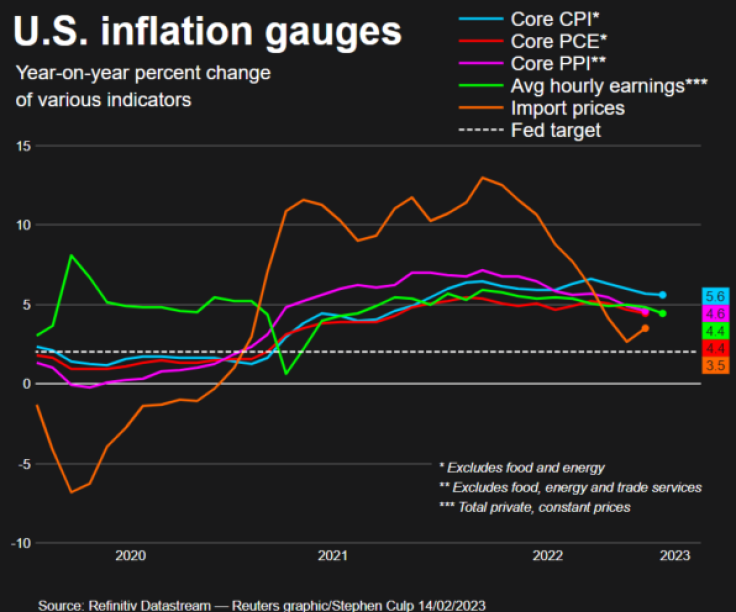
No other institutions consistently Rule over as Much in the World as the Giant Global Corporations – not governments, not armies, not religions and certainly not trade unions. These fictional corporate entities have largely achieved transcendent imperial status, as they amass coordinated control over capital, labor, technology and governments because they have secured the rights bestowed upon human beings. In a confrontation or a conflict or even a contract, it is no contest: mere people don’t have a chance.
As Supreme Court Justice Louis D. Brandeis warned in 1933, we have created a “Frankenstein monster” in our midst, whose unifying lust for power and control on behalf of their profits know few limits.
In last week’s column, I described a dozen sectors in which the privileged legal advantages of corporate supremacy over real people make the former more powerful every day. And every day people start with a massive disadvantage whether in the marketplace, the workplace, the environment, the taxation realm, the electoral and governmental arena, and access to justice. Yes, in cultural appropriations as well.
For about 150 years the courts have arbitrarily accorded corporate personhood the same rights as real humans even though the words “corporation” or “company” never appear in our Constitution. This blatant fictional identity has upset some pretty serious jurists. In his dissent against the justices who, breaking precedent, decided in 2010 that corporations could give unlimited money to oppose or support candidates for public office, Justice John Paul Stevens wrote: “Corporations have no conscience, no beliefs, no feelings, no thoughts, no desires … they are not themselves members of ‘We the People’ by whom and for whom the Constitution was established.” He called the deciding Justices’ claim that “money is speech” for purposes of the First Amendment, “…a conceit that corporations must be treated identically to natural persons…” in the political sphere.
Ronald Dworkin, a well-regarded legal philosopher, declared: “The argument – that corporations must be treated like real people under the First Amendment – is in my view preposterous. Corporations are legal fictions. They have no opinions of their own to contribute and no rights to participate with equal voice or vote in politics.”
Long ago Thomas Jefferson and Thomas Paine warned about early commercial giants in their day. In 1910 former President Theodore Roosevelt told a gathering of Union Army Veterans: “The citizens of the United States must effectively control the mighty commercial forces which they have themselves called into being.” (Through state charters that bring corporations into existence.)
None of these and other similar commentators wished to deny full constitutional rights to people working in these legal fantasies called corporations. They just didn’t want corporations to be able to utilize corporate personhood per se as a juggernaut for their pursuits.
What is happening with each passing year, with fearsome perils, is that large corporations are attaching their special privileges and immunities to technologies. These privileges and immunities include artificial intelligence (robots), biotechnology (changing the nature of nature) and nanotechnology (used in autonomous weapons, etc.) and, of course, nuclear power and weapons of mass destruction. Corporate lawyers will soon be advocating those corporate-owned, complex, self-activating robots have the same legal fictional rights as their owner, lessor or breeder.
As law professor George J. Annas observed: The artificial person fantasy continues to grow, as does the destructiveness of major corporations. He heralded “climate change” as one devastating example.
After much documentation of large corporate predations savagely out of control by mere nation-states, outwitting most civic and political challenges to their sprawling hegemony, it is time to move from skirmishes to fundamental constitutional subordinations of the corporate entity to the supremacy of natural persons. This will require two streams of parallel, deliberative action. First, citizen groups who know better must elevate their experience by taking on big business and moving from symptoms to root causes that enable these “Frankenstein monsters” uber alles. Civic groups need to educate people about the fact that corporate birth certificates, which allow companies to exist, are created by governments and can be conditioned or abolished by that same authority.
People understand the cruelty of uneven playing fields at the starting gates. Continual public education is essential for transformative displacement of the corporate entities to a secondary status to prevent or contain commercially-driven abuses of power.
The second stream must come from the recognition that the necessary constitutional amendment placing the corporate entity in a distinctly unequal status vis-à-vis human beings will require rigorous research and thought. Establishing inferior legal status for corporations within our political economy is essential. New corporate structures for non-commercial activities will need to be explored, and other forms of collective organizations will need to be developed or recalled from history. Many academic disciplines and their practitioners in real life need to be enlisted.
Make no mistake, the leading reversal of the contrivances of corporate attorneys, must come from lawyers and scholars in the public interest who know how corporate attorneys have constructed the corporate state. It is time to rein in unaccountable, cost shifting, autocratic, hierarchical “Frankenstein monsters” that create their own out of control engines.
Drafting the enforceable statutes to implement the basic constitutional amendment is a task of unravelling and creating never before attempted. Ever more widely perceived runaway corporate controls of our daily lives, (already decried by over 70% of people in polls) with their associated manifestations of corporate coercion, corporate violence and corporate takeover of public institutions, will generate this last clear chance. Act before the concentrated automation of these global forces, bereft of actionable legal and ethical frameworks, turn omnicidal.
Related Posts
Jake Johnson -- November 16, 2022
New Data Tool Details Thousands of Corporations Profiting From US Prison Industry
Brett Wilkins -- October 13, 2022
Landmark Inquiry in Philippines Backs Accountability for ‘Climate-Polluting’ Corporations
Jessica Corbett -- May 09, 2022
Big Corporations, Dangerous Politicians Break Established Norms
Ralph Nader -- August 15, 2022
How private corporations stole the sea from the commons
Guy Standing -- July 29, 2022
Ralph Nader
Nader is opposed to big insurance companies, "corporate welfare," and the "dangerous convergence of corporate and government power." While consumer advocate/environmentalist Ralph Nader has virtually no chance of winning the White House, he has been taken quite seriously on the campaign trail.
Indeed, he poses the greatest threat to Sen. John Kerry. Democrats fear that Nader will be a spoiler, as he was in the 2000 election, when he took more than 97,000 votes in Florida. Bush won Florida by just 537 votes. The win gave Bush the election. Nader, an independent candidate, who also ran in 1992 and 1996, is on the ballot in 33 states, including Florida, Ohio, Wisconsin, and New Mexico—tough battleground states. Kerry stands a chance of losing those vital states if Nader siphons away the votes of Democrats. President Bush and Kerry have been in a statistical dead heat in nationwide polls, and votes for Nader could well tip the balance in favor of Bush.
Many Kerry supporters contend that a vote for Nader is in reality a vote for Bush and have made concerted efforts to persuade Nader to throw his support behind the Democratic candidate. Nader, however, has held fast to his convictions that the two candidates are nearly indistinguishable and are pawns of big business.
Designing Cars for Everything but Safety
Nader was born in Winsted, Connecticut, on Feb. 27, 1934 to Lebanese immigrants Nathra and Rose Nader. Nathra ran a bakery and restaurant. As a child, Ralph played with David Halberstam, who\'s now a highly regarded journalist.
Nader with Democratic nominee Jimmy Carter outside of Jimmy Carter\'s home on August 7, 1976, discussing Consumer Protection. (Source/AP)
Nader graduated magna cum laude from Princeton in 1955 and from Harvard Law School in 1958. As a student at Harvard, Nader first researched the design of automobiles. In an article titled "The Safe Car You Can\'t Buy," which appeared in the Nation in 1959, he concluded, "It is clear Detroit today is designing automobiles for style, cost, performance, and calculated obsolescence, but not—despite the 5,000,000 reported accidents, nearly 40,000 fatalities, 110,000 permanent disabilities, and 1,500,000 injuries yearly—for safety."
Early Years as a Consumer Advocate
After a stint working as a lawyer in Hartford, Connecticut, Nader headed for Washington, where he began his career as a consumer advocate. He worked for Daniel Patrick Moynihan in the Department of Labor and volunteered as an adviser to a Senate subcommittee that was studying automobile safety.
In 1965, he published Unsafe at Any Speed, a best-selling indictment of the auto industry and its poor safety standards. He specifically targeted General Motors\' Corvair. Largely because of his influence, Congress passed the 1966 National Traffic and Motor Vehicle Safety Act. Nader was also influential in the passage of 1967\'s Wholesome Meat Act, which called for federal inspections of beef and poultry and imposed standards on slaughterhouses, as well as the Clean Air Act and the Freedom of Information Act.
"Nader\'s Raiders" and Modern Consumer Movement
Nader\'s crusade caught on, and swarms of activists, called "Nader\'s Raiders," joined his modern consumer movement. They pressed for protections for workers, taxpayers, and the environment and fought to stem the power of large corporations.
In 1969 Nader established the Center for the Study of Responsive Law, which exposed corporate irresponsibility and the federal government\'s failure to enforce regulation of business. He founded Public Citizen and U.S. Public Interest Research Group in 1971, an umbrella for many other such groups.
A prolific writer, Nader\'s books include Corporate Power in America (1973), Who\'s Poisoning America (1981), and Winning the Insurance Game (1990).












